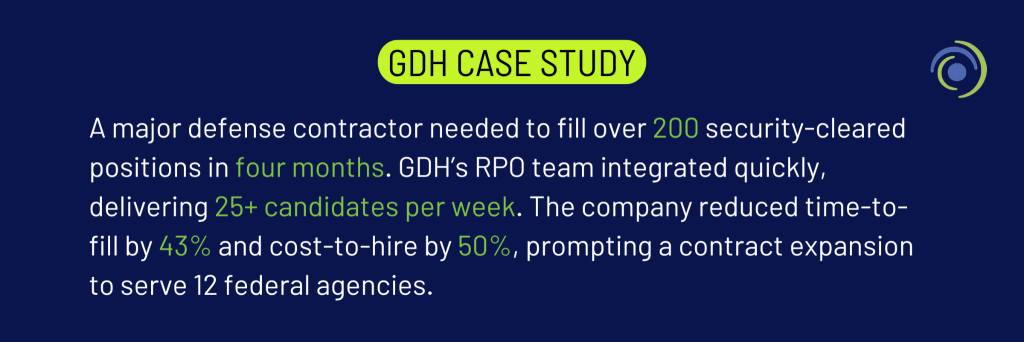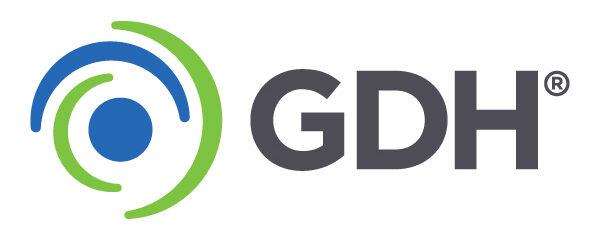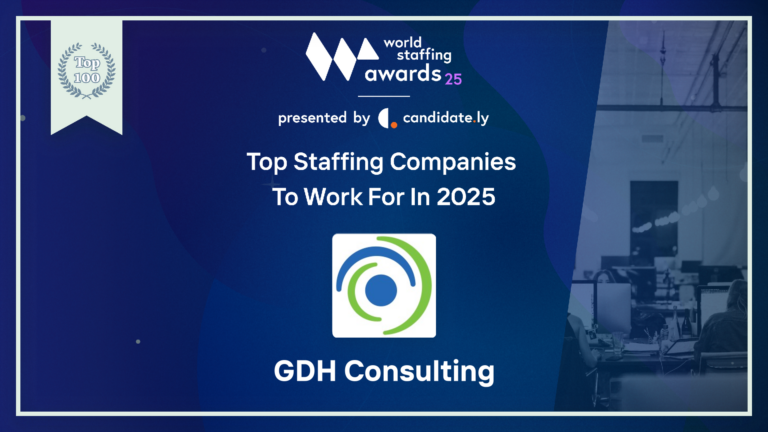How Recruitment Process Outsourcing (RPO)
Updated September 2025
Key Takeaways:
- Save time and resources. RPO shifts day-to-day recruiting tasks to experts so your team can focus on strategy.
- Lower cost-per-hire. Outsourcing recruitment reduces expenses by cutting job board, tech, and admin costs.
- Improve candidate quality. Dedicated recruiters and advanced tools ensure better-fit hires.
- Scale hiring quickly. RPO solutions flex with your hiring demands—whether you need 5 roles filled or 500.
- Enhance compliance. RPO providers manage legal and regulatory standards to reduce hiring risks.
What is Recruitment Process Outsourcing (RPO)?
Recruitment process outsourcing (RPO) is a form of talent acquisition strategy in which a company transfers all or part of its recruiting processes to an external partner. That partner acts as an extension of your team, bringing dedicated recruiters, systems, and tools to fill roles efficiently and effectively.
Unlike traditional hiring, where internal teams juggle recruiting on top of other HR responsibilities, RPO allows your team to stay focused on core business initiatives. RPO providers also deliver access to best-in-class recruiting platforms and proven sourcing techniques.
There are two main RPO models:
- Full-cycle RPO. Manages sourcing through onboarding as a complete outsourced solution.
- Partial-cycle RPO. Supports only specific parts of the process, like sourcing, screening, or onboarding.
Visual suggestion: Process graphic showing RPO stages: sourcing → screening → interviewing → hiring → onboarding.
Working with an RPO partner can save organizations as much as 40-50% of their recruitment cost.

Benefits of RPO Solutions for Your Business
RPO creates long-term value across every aspect of hiring. Let’s explore how RPO solutions give your team a competitive edge.
Reduced Cost-per-hire
Outsourcing lowers hiring costs by consolidating resources and minimizing waste. RPO partners reduce ad spend, eliminate expensive agency fees, and streamline internal workloads.
Improved Time-to-hire
RPO providers leverage pre-vetted talent pipelines and automated sourcing tools to get qualified candidates to your desk faster. These processes often cut hiring timelines by weeks.
Better Candidate Experience
With RPO, your candidate journey is consistent, branded, and proactive. Clear communication, fast follow-up, and smooth onboarding improve your employer reputation.
Access to Recruiting Technology
You gain access to leading tools like AI sourcing platforms, applicant tracking systems (ATS), and real-time recruiting analytics. These are all included with your RPO partner.

When to Consider Outsourcing Recruitment
RPO isn’t just for enterprise-scale hiring. It’s a fit for any business facing high-volume needs, urgent deadlines, and/or niche roles.
Consider RPO if your organization is facing:
- High-volume hiring. Scale teams quickly without sacrificing quality.
- Hard-to-fill roles. Access niche skill sets or security-cleared positions.
- Business growth. Enter new markets or expand product lines.
- Regulatory requirements. Hire quickly in industries with strict compliance standards, like government and healthcare.

How Recruitment Process Outsourcing Works
RPO follows a methodical process to make quality hires under strict constraints. Here’s a breakdown of a typical RPO workflow, from onboarding to final hire:
Discovery
The provider evaluates your current hiring process, company culture, and staffing goals. This insight allows them to tailor a recruitment process that aligns with your workforce strategy and internal team structure.
Sourcing and Screening
RPO recruiters build candidate pipelines using AI sourcing tools, job boards, and niche databases. They vet each applicant through structured screening to ensure alignment with job requirements and cultural fit.
Interview Coordination
They handle scheduling, prep, and feedback loops, keeping candidates engaged and hiring managers informed. This reduces administrative load and keeps your process moving smoothly.
Offer and Onboarding
Once a candidate is selected, the RPO team supports offer negotiation, background checks, and paperwork. They also coordinate onboarding steps to ensure a consistent, branded experience for new hires.
Client Success Story: RPO in Action

Still have questions about RPO? See our FAQ below.
Next Steps for Your Team
Your hiring process shouldn’t slow down growth. Whether you’re scaling quickly, entering a new market, or facing resource shortages, Recruitment Process Outsourcing (RPO) can help your team stay focused while securing top-tier talent.
Explore your options, evaluate your current talent acquisition strategy, and consider what an RPO pilot could unlock.
Learn more about GDH’s Recruitment Process Outsourcing services. Contact GDH today to discuss your hiring needs—and see how a tailored RPO solution can reduce costs, accelerate hiring, and deliver the IT professionals your projects demand.
FAQs
What is recruitment process outsourcing?
Recruitment Process Outsourcing (RPO) is when a company outsources some or all of its hiring functions to a third-party expert that manages sourcing, interviewing, and onboarding.
How does RPO reduce hiring costs?
RPO streamlines sourcing, consolidates technology, and removes redundant internal steps, helping you reduce cost-per-hire significantly.
What types of companies benefit from RPO?
Companies in fast-moving, highly regulated, or talent-scarce industries benefit most from RPO. These include healthcare, government, technology, finance, energy, communications, hospitality, transportation and logistics, retail, and consumer goods.
Is RPO flexible?
Yes. RPO solutions can scale up or down depending on your hiring volume or specific project goals.
How is RPO different from staffing agencies?
Staffing firms fill roles transactionally. RPO is a strategic, long-term approach aligned with your talent acquisition strategy.








